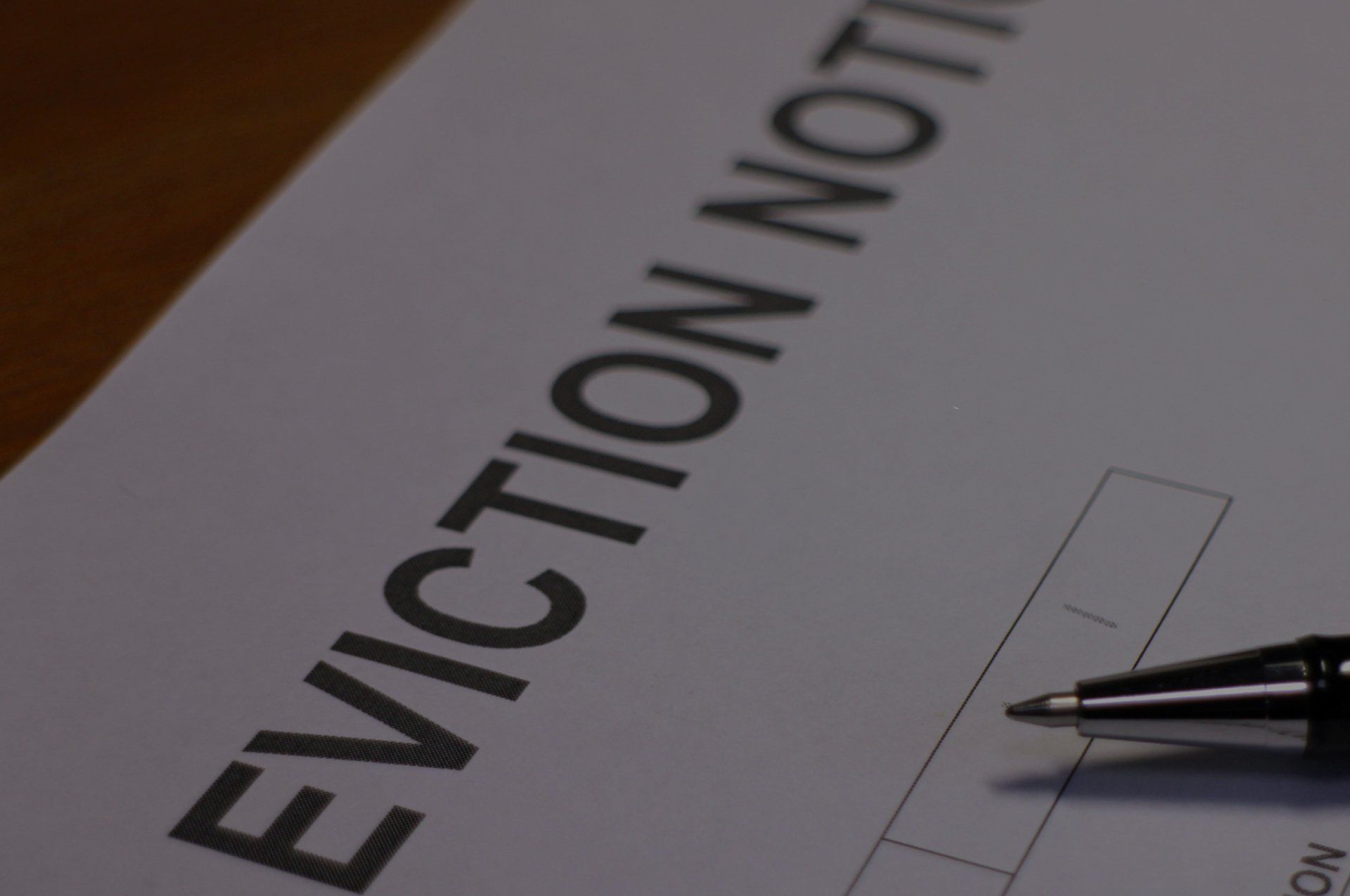Eviction
P1. A written notice. Nonpayment of rent. To evict a tenant for nonpayment of rent, the landlord must first deliver to the tenant a written notice stating that the tenant has 3 days (not counting the day the notice is given, weekends, or holidays) to pay the rent or vacate. If the tenant offers the full rent within 3 days, the landlord must accept it. However, the landlord need not accept less than the full amount owed.
B. Eviction for cause: The landlord may evict a tenant for violations of a written lease agreement such as excessive noise, property damage, failure to keep the premises clean and sanitary, etc. The landlord must give the tenant 7 days written notice specifying the violation(s) and warning the tenant of the violation of the lease terms.
C. Termination of rental agreement: If the lease is not for a specific length of time or if there is no written lease, a landlord may end the lease without reason by giving proper notice. If rent is paid monthly, the notice must be given at least 15 days before rent is due. If rent is paid weekly, the notice must be given at least 7 days before rent is due. Termination notices must be in writing.
2. Summons and complaint If the tenant does not pay rent owed after receiving a 3-day notice or does not take care of the problem within 7 days after receiving a 7-day notice and opportunity to cure or if the tenant fails to move out after the lease is terminated, the landlord may file a complaint with the Clerk of the Court. The complaint and a summons are served upon the tenant by the sheriff or authorized process server. These legal papers may be posted on the tenant's door (if the paperwork is also mailed to the tenant by the clerk) after two unsuccessful attempts to serve the tenant in person.
3. Filing a complaint for eviction. Property owners, attorneys, and property managers may file a complaint for eviction. However, if the property manager files the complaint and the tenant files an answer, the eviction proceeding must stop until the owner or an attorney becomes involved. This is also true for an owner who lives out of state.
4. Response by tenant. The tenant has 5 days to answer the complaint this is because of Summary Procedure. The days are counted based on the date of service by the sheriff or the date of posting on the door, not by the mailing from the clerk. The 5 days begins on the date after the tenant was served and does not included weekends and legal holidays. A written answer setting forth proper defenses to the eviction must be filed with the Clerk of Court and a copy must be mailed to the landlord within the same 5 days. The tenant must also deposit with the court the amount of rent alleged in the complaint to be owed unless the defense is that the tenant has paid the landlord. If the tenant does not answer, or fails to deposit this rent, the landlord is entitled to an immediate default, which means the landlord wins. If the tenant disputes the amount of rent owed, he or she must file a written motion to determine the amount of rent to be paid into the registry along with the answer. The motion should state the reason why a different amount should be deposited and ask the judge to decide the correct amount. Any receipts or documentation must be attached to the motion. At that point, the judge may schedule a hearing to determine the correct amount. A tenant must deposit their monthly rent with the court as it comes due during the eviction proceeding. If you are served with a complaint, you should immediately contact a lawyer. You should not wait until the fourth or fifth day since that would not allow adequate time to prepare a defense.
5. Court hearing If the tenant files an answer and deposits rent with the court or files a motion to determine rent and no default judgment is issued, either the tenant or the landlord may set a date for a hearing before the judge. If neither party schedules a hearing, the judge will. The parties will be notified of the time and place of the hearing, and they will have an opportunity to present their cases. If the landlord wins, the landlord will obtain a Judgment for Possession. If the tenant fails to attend the hearing, the landlord wins automatically.
6. Eviction If the landlord wins (either by default or after a hearing) and obtains a judgment for possession, the court will issue a writ of possession to the sheriff. The sheriff then posts the writ on the tenant's premises. The tenant has 24 hours to vacate, after which the sheriff or landlord may forcibly evict the tenant and change the locks. There are certain procedures for the handling of the personal belongings of the tenant left behind.














